What We Do
Leadership Development

Coaching for Peak Performance
Coaching for Peak Performance
Learning and personal development opportunities help people feel more confident and capable and they contribute to a sense of belonging and well-being. Companies that invest in employee development through coaching are more likely to retain their top talent. By adopting a coaching mindset and approach, leaders can create a supportive and empowering environment that enables team members to realize their potential and grow both personally and professionally.
For many leaders, however, the transition to “coach” isn’t easy. Even great leaders may not be naturally gifted at coaching. In fact, some coaching traits are at odds with what they consider to be their leadership strengths. But coaching skills can be acquired and honed through training and practice.
PMA Philadelphia offers Coaching for Peak Performance, a program that provides support and comprehensive instruction on the critical techniques for both developmental and performance coaching. Through simulations and role playing, participants experience a proven process for applying the tools of effective coaching and communication. The program provides an understanding of coaching relationships, listening skills and coaching techniques that result in a greater ability to effectively develop direct reports and colleagues.
By the end of this program, Coaching for Peak Performance participants will be able to:
- Appraise and apply a coach’s roles and responsibilities.
- Develop effective partnerships with those they coach and supervise.
- Distinguish between the need for performance versus development coaching.
- Determine the component(s) required to build new skills and behaviors.
- Structure the coaching relationship so the ownership of the process remains with the coachee.
- Plan effective communication strategies for each person they coach.
- Collaborate with staff and develop coaching plans based on performance reviews & IDPs.
- Recognize formal and impromptu coaching opportunities.
Who should attend?
Individuals looking to develop and practice effective coaching competencies and leaders who wants to improve trust, communication and engagement with their team.

Conducting Effective Meetings
Conducting Effective Meetings
Professionals who spend 11 hours or more per week in meetings estimate that 25 percent of that time is wasted. Either the wrong people are in attendance, the meetings run too long or there are ineffective follow-up mechanisms in place. We are part of a culture run by virtual or in-person meetings, yet we rarely have the opportunity to learn how to effectively run, or productively attend, a meeting. Small wonder that comments like “When will this meeting end?” and “What’s the point of this discussion, anyway?” are standard fare. These disheartening questions can be answered and the problems with many meetings addressed as 70% of meeting conflict stems from flaws in the meeting process or the meeting facilitator’s approach.
The definition of facilitate is “to make easy” or “ease a process”. A great facilitator plans, guides and manages meetings and events to ensure that the objectives are met effectively and that everyone leaves with clear outcomes. Facilitators need a wide range of tools and skills to ensure that meeting and participants are engaged in the meeting. From problem solving and decision-making skills to team management and communications, a facilitator’s ability to engage a group makes all the difference. Since a well facilitated meeting can make the difference between success and failure, taking the time to hone your engagement skills is of the utmost importance.
PMA Philadelphia offers Conducting Effective Meetings, a program that covers the planning and preparation of meetings; how to recognize and handle different “meeting personalities;” and how to create a respectful, productive meeting environment. This course includes a “best practice” model for facilitating or attending meetings, and several opportunities to try out your new skills.
By the end of the program, participants will be able to:
- Structure productive meetings that achieve the desired results.
- Contribute their expertise in a way that is most likely to be helpful.
- Build stronger relationships throughout the organization.
- Create an effective meeting atmosphere.
- Contribute to, and increase the productivity of, the meetings they attend or lead.
- Understand behavioral styles and how they emerge in meetings.
Who should attend?
Workgroups and teams; including managers, technical and sales professionals, supervisors, administrators and project leaders who currently conduct or attend meetings.

Inspired Leadership
Most leaders find themselves juggling operations, people and strategies. Many feel that they do not have as much time to invest in the development of their people as they do in their operations. Developing people is seen as a project too large to work on daily …
Inspired Leadership
Most leaders find themselves juggling operations, people and strategies. Many feel that they do not have as much time to invest in the development of their people as they do in their operations. Developing people is seen as a project too large to work on daily so they often wait for special opportunities – or dire circumstances – to focus on their teams’ professional development.
An inspired leader is able to motivate and engage employees, build strong teams, and create a positive work culture by focusing on four factors: Right Goals, Right Processes, Right People and Right behavior. With the right tools and support, leaders can adapt to change, find creative solutions to challenges, drive innovation and growth, and foster a positive and productive work environment. But the pathway to becoming an inspired leader is one that is fraught with distractions and challenged.
PMA Philadelphia offers Inspired Leadership, a program designed to help leaders understand the ABCs (antecedents, behaviors and consequences) that shape behaviors. In this half-day workshops, participants walk through the process of choosing a goal for their team and rolling it through a series of checks, learning aids and simulations to create a strategic plan that will improve results, positively influence behavior and guide their team to continued success.
By the end of this program, participants will be able to:
- Link behaviors to goals.
- Identify employee needs and development opportunities.
- Align behavior and consequences.
- Improve feedback conversation.
- Determine results and measures of success.
- Understand the influences on behavior.
Who should attend?
This program is open to supervisors, team leaders, managers, and high-potential future leaders.

Art Of Effective Feedback
Art of Effective Feedback
Good communication tops the list of desirable qualities in a team member and one of the most important skills you can learn is how to give and receive feedback effectively. But, regardless of your professional role, feedback can be tricky. It must be given in a way that is accurate, openly received, and effective and it must be taken in without unnecessary anxiety or defensiveness. Giving and receiving positive and constructive feedback in the appropriate manner can go a long way towards keeping people engaged and motivated while reinforcing positive behaviors and correcting ineffective ones.
Adding to the delicacy of giving feedback is the fact that many of us are in a virtual workplace and have lost some of the natural interactions and feedback loops that tend to happen in the office. We no longer have the benefits of the literal “water cooler” where casual conversations and interactions helped to build trust and augment team communication. Effective person-to-person feedback is more important than ever as leaders and team members learn to handle cross-functional work and increasingly demanding loads.
PMA Philadelphia offers The Art of Effective Feedback, a program designed to provide the knowledge and skills to feel more comfortable and confident when giving and receiving feedback. The program explores the true purpose of feedback and defines core feedback principles. We then apply those principles to a structured process and practice running our feedback process in a safe and supportive environment. Participants will examine the advantages and common barriers to effective feedback in organizational settings and learn research-backed strategies for improving feedback conversations.
By the end of this program, participants will obtain the skills necessary to:
- Adopt a structured model for giving and receiving feedback in a way that assures accountability and behavioral change.
- Discuss and practice the skills they need to confidently deliver and receive constructive and genuinely useful feedback.
- Understand resistance to feedback.
- Adopt a feedback-positive mindset that values self-awareness and assumes positive intent.
- Create and maintain a psychologically safe space for team members to give and receive feedback.
Who should attend?
Managers, leaders and independent contributors who are interested in adopting an effective process and skills for giving and receiving feedback.

Conflict Management
Interpersonal issues between colleagues are often barriers to a team’s success, and unhealthy conflict in the workplace is disruptive. It creates problems with productivity or alignment, and it can derail and entire strategy. But healthy conflict can be used…
Conflict Management
Interpersonal issues between colleagues are often barriers to a team’s success, and unhealthy conflict in the workplace is disruptive. It creates problems with productivity or alignment, and it can derail and entire strategy. But healthy conflict can be used positively to take advantage of diverse perspectives, promote creativity and drive innovation.
Most often, programs on conflict are sought out only after conflict arises. PMA’s approach to workplace conflict focuses on preparation in advance of conflict which is a key competency in managing it. Leaders with the forethought to proactively manage relationships and communications in their team can minimize barriers to their team’s success.
We all have our own ways of managing conflict, and we can become overly reliant on the methods we are most comfortable using. If we are not secure with other conflict resolution methods, we’re exposed to the possibility of lengthening the time it takes to resolve a conflict.
Conflict Management exposes participants to the five Conflict Management Styles as identified by the Thomas-Kilmann Conflict Mode Instrument (TKI). Utilizing case studies and the TKI assessment, leaders learn a variety of approaches to conflict resolution and gain a better understanding of their natural inclination in conflict. Leaders learn which styles and strategies are appropriate for a given situation and are given time to practice them. With tools to help leaders in a variety of settings, this program also focuses on preparation as a best practice and offers leaders both resolution and prevention strategies.
Open to leaders and independent contributors, attendees of this program will:
- Identify their conflict style and frequency of use.
- Implement a conflict resolution process for their team.
- Select the appropriate communication style based upon the nature of the situation and the people involved.
- Distinguish and avoid common conflict triggers.
- Move a colleague from a defensive to open position.
- Practice applying the techniques with different styles of people in a supporting, learning environment.
- Manage their own emotions and responses during conflict conversations.
- Obtain tools and techniques that help prevent, manage, and resolve conflicts.
Who Should Attend?
This course is designed for leaders, managers, team members, and individual contributors who need to interact, collaborate, and make decisions with others to achieve their goals.

Leading High Performing Teams
Leading High Performing Teams
There is no doubt that teamwork is essential to the success of any organization. No single individual can do all the work on their own. As teams grow and shift, it’s not unusual for individuals to feel unsure about their role on the team. Hard working teams often find it challenging to achieve the results they deserve when everyone is not on the same page.
The role of a team leader is to guide and support the team in achieving its goals and objectives. The leadership role becomes increasingly demanding as more work is conducted remotely, traditional company boundaries become more porous, and partnerships more necessary. High performance team leaders must be able to identify and address any issues or challenges that are hindering team performance, and work with team members to find solutions. This includes setting clear expectations and goals, communicating effectively with team members, and providing ongoing support and feedback. It’s up to the team leader to motivate and inspire team members to perform at their best and create a positive and collaborative team culture.
PMA Philadelphia offers Leading High-Performance Teams, a program designed to share six common characteristics that can be adopted by any team, at any level. The session utilizes unique simulations that rapidly replicate team dynamics. After the simulation, the team’s results are analyzed with respect to each part of the 6-part, High Performance Teams model. This process allows participants to celebrate their achievements and uncover opportunities to improve the team and their individual roles as team leaders.
By the end of this program, participants will obtain the skills necessary to:
- Improve a team’s productivity.
- Resolve harmful conflict amongst team members.
- Establish a higher team “IQ”.
- Develop a stronger buy-in to the team’s mission.
- Improve the team experience for team members and team leader.
- Adopt a Team Charter.
Who should attend?
This program is available for team leaders who want to build effective teams and achieve synergy. It is especially recommended for those who are facing the challenges of developing high performance teams in a global environment.

Process Improvement
Work has changed dramatically. Companies are juggling a hybrid workforce, disruptive technologies, new competitive pressures and constantly shifting demands. Amid all these changes, processes and workflows have been reorganized, disrupted and, in some cases…
Process Improvement
Work has changed dramatically. Companies are juggling a hybrid workforce, disruptive technologies, new competitive pressures and constantly shifting demands. Amid all these changes, processes and workflows have been reorganized, disrupted and, in some cases, stopped entirely. In addition, complex processes with many steps or dependencies may be more prone to breakdowns. How do you improve processes that waste time, money or fall short of your customer satisfaction goals?
Process Improvement is a series of steps taken to identify, analyze and improve existing processes within an organization that is trying to meet new or existing goals and objectives. It’s a way to identify bottlenecks or inefficiencies and implement changes required to streamline processes. Organizations can start with a single process and expand their use of it throughout their entire operation. Although there are many different methodologies such as ISO 9000, TQM, Six Sigma and LEAN, their complexity and time requirements may go beyond the limitations and needs of the average business.
PMA Philadelphia offers Process Improvement, a facilitated workshop designed to tackle existing business processes and leverage the people best positioned to creatively and collaboratively generate true change. The session instructs a defined method for identifying the steps of a process and evaluating each step against a variety of criteria. This surfaces potential solutions and improvements. Even more valuable are the team’s new-found skills and their ability to repeat (without the facilitator) this exercise on a host of other processes.
By the end of this program, participants will be able to:
- Determine when a process is a candidate for process improvement work sessions.
- Map the steps of any process (business or personal).
- Engage a team and capture their expertise in the mapping and improvement process.
- Implement streamlining approaches for improved efficiency and cost savings.
- Apply a simple decision-making process to tackle only the most valuable improvements.
- Devise action plans and follow up for success.
Who Should Attend?
Anyone involved in the design, implementation, or management of business processes within an organization and employees who are directly involved in the process itself.

Leading With Emotional Intelligence and Agility
The “Leading with Emotional Intelligence and Agility” training program is designed to cultivate emotional intelligence through an agile approach, ensuring that participants are better equipped to navigate the complexities of their work environments.
Leading with Emotional Intelligence and Agility
The “Leading with Emotional Intelligence and Agility” training program is designed to cultivate emotional intelligence through an agile approach, ensuring that participants are better equipped to navigate the complexities of their work environments. This 4-hour workshop leverages the insights from the Wiley Everything DiSC Agile EQ Profile to help individuals understand their emotional tendencies, recognize others’ emotional cues, and adapt their responses to different situations.
Participants will engage in a variety of interactive activities, self-assessments, and group discussions that will deepen their understanding of emotional intelligence and the mindsets that impact their outcomes. The program emphasizes the importance of flexibility in emotional responses and provides practical strategies for improving interpersonal interactions, leading to more effective communication, collaboration, and conflict resolution.
By the end of this session, participants will have a personalized profile that highlights their unique EQ strengths and development areas, along with actionable steps to enhance their emotional agility. This transformative experience not only fosters individual growth but also contributes to a more cohesive and resilient organizational culture.
By the end of this program, participants will obtain the skills necessary to:
- Understand emotional intelligence and its significance in the workplace.
- Identify personal emotional tendencies and how they influence interactions with others.
- Recognize and interpret the emotional cues of others accurately.
- Develop strategies to adapt emotional responses to different situations and individuals.
- Enhance communication skills by applying emotional intelligence principles.
- Manage and resolve conflicts more effectively using emotional intelligence.
- Create a personalized action plan based on the Everything DiSC Agile EQ Profile to foster continuous improvement in emotional agility.
Who should attend:
This program is ideal for professionals at all levels who are looking to enhance their emotional intelligence and interpersonal skills. It is particularly beneficial for leaders who are seeking to improve their leadership effectiveness and develop the emotional intelligence necessary to support a thriving agile culture.

Strategy to Execution
Strategy to Execution
One of the biggest challenges for executives is an organization’s ability to execute strategy. Most leaders rely on a set of unspoken philosophies about how to get things done when they try to execute a new strategy. But many common assumptions about execution can be difficult to understand and may not be obvious to members of the team. So, while leaders and managers may be comfortable creating a strategic plan for moving their organization forward, many struggle to turn abstract goals and strategies into reality.
In this time of unprecedented change, leaders need the skills to oversee execution and build a more agile workforce. To that end, leaders have various “levers” at their disposal to help them initiate execution. These levers range from managing performance to creating and managing projects. Change management also occupies a critical place on the execution pathway. Successful execution relies on a leader’s ability to identify and deploy the appropriate levers for each piece of a strategy.
PMA Philadelphia offers Strategy to Execution, a program that leads participants through the actual process of creating or examining a strategy and then initiating the transition from that strategy to a tangible workplan. Leaders learn to use their levers to create the plan, mobilize the team, drive execution, and sustain the actions necessary to achieve desired results. Through videos, practice conversations & planning activities, participants learn to reframe execution, avoid common mistakes and focus on the actions that are most likely to bring results. Strategy to Execution provides results-oriented insights into what it takes to implement major change effectively.
By the end of this program, participants will obtain the skills necessary to:
- Develop a plan for executing a new strategy.
- Identify what changes will be necessary in projects, process, and behaviors.
- Determine the linkage between antecedents, behaviors, and consequences.
- Adopt and create effective messaging for driving execution.
- Identify gaps between actual and desired behaviors and implement appropriate support measures.
- Motivate and reinforce behavioral changes for sustained results.
Who should attend?
This course is designed to help global executives close the gap between strategic intent and results.

